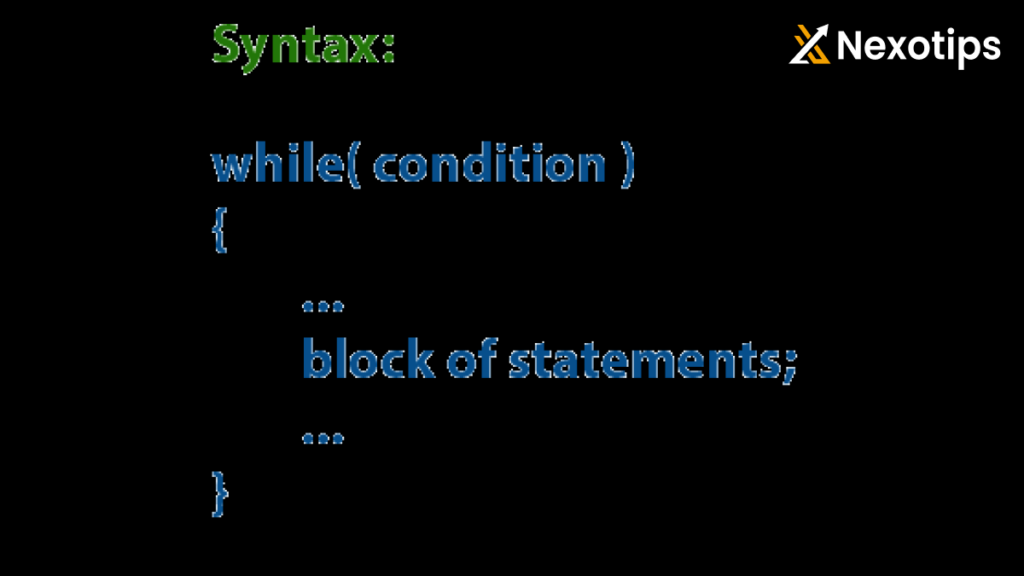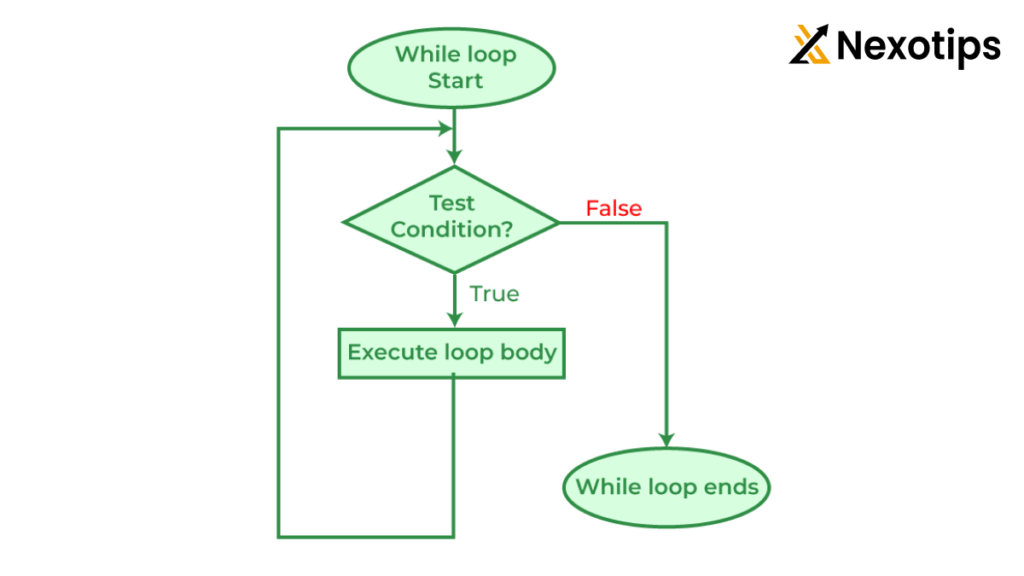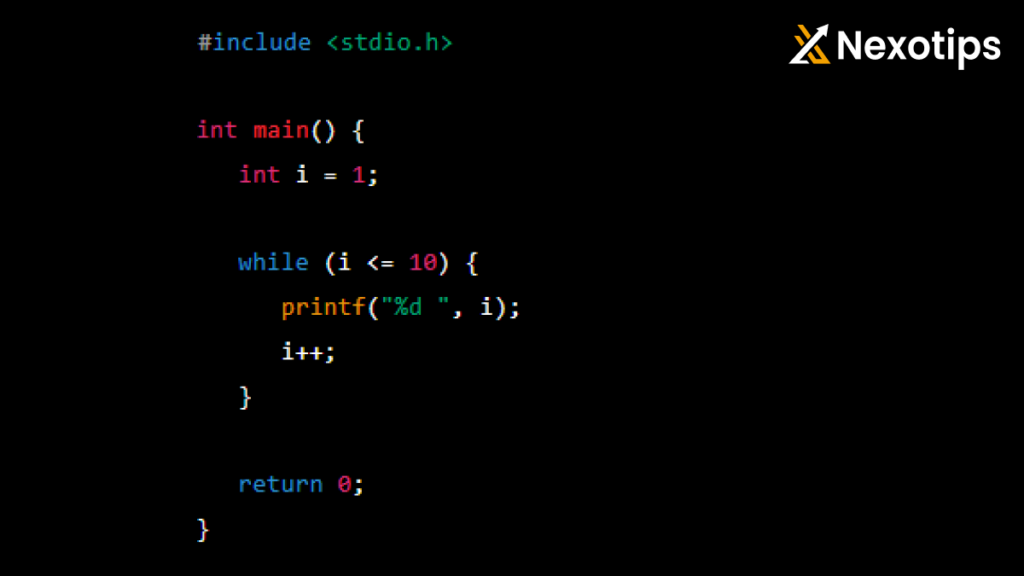
Exploring the Power of While Loops in C Programming.
In the realm of programming, loops are essential constructs that allow developers to execute a block of code repeatedly based on certain conditions. One of the fundamental types of loops in the C programming language is the while loop. This versatile tool provides programmers with a flexible means to iterate through code as long as a specified condition remains true.
Index.
Understanding the Basics of While Loops
A while loop in C operates by repeatedly executing a target statement or block of statements as long as the given condition evaluates to true. Prior to each iteration of the loop, this condition is verified. If the condition is true, the loop body executes; if false, the loop terminates, and control passes to the next statement after the loop.
Syntax of a While Loop
The syntax of a while loop in C is straightforward:
while (condition) {
// statements to be executed as long as the condition is true
}
An expression that evaluates to a boolean value (true or false) is used in this case as the condition. The statements within the curly braces {} constitute the body of the loop and will be executed repeatedly as long as condition remains true.
Key Features and Benefits of While Loops
- Flexibility: While loops are highly flexible because they allow execution of the loop body as long as the condition holds true. This makes them suitable for scenarios where the number of iterations is not known beforehand or where the loop must continue until a certain condition is met.
- Initialization and Updates: Before entering a while loop, variables can be initialized, and within the loop body, these variables can be updated to control the loop’s behavior. For example:
int i = 0;
while (i < 10) {
// loop body
i++; // incrementing i to control loop iteration
}In this example, i is initialized to 0, and the loop continues to execute as long as i is less than 10. The i++ statement increments i after each iteration, eventually causing the loop to terminate when i becomes 10.
- Condition Evaluation: The condition within a while loop is re-evaluated before each iteration. If the condition initially evaluates to false, the loop body will not execute at all.

Examples of While Loops in Action
Let’s consider some practical examples to illustrate the usage of while loops in C programming:
Example 1: Counting Down from 5 to 1
int count = 5;
while (count > 0) {
printf("%d ", count);
count--;
}In this example, the loop starts with count initialized to 5. As long as count is greater than 0, the loop prints the current value of count and then decrements count by 1 in each iteration. The output will be 5 4 3 2 1.
Example 2: Reading Input Until a Specific Condition
#include <stdio.h>
int main() {
int num;
printf("Enter a number (-1 to exit): ");
scanf("%d", &num);
while (num != -1) {
printf("Entered number: %d\n", num);
printf("Enter another number (-1 to exit): ");
scanf("%d", &num);
}
printf("Loop exited because -1 was entered.\n");
return 0;
}The user is prompted by the application to enter a number in this example. The while loop continues to execute as long as the entered number is not -1. Inside the loop, it displays the entered number and prompts the user for another input until -1 is entered, causing the loop to terminate.
Best Practices for Using While Loops
While loops are powerful tools in C programming, they should be used with care to avoid potential pitfalls such as infinite loops (loops that never terminate). Here are some best practices:
- Initialization: Always initialize loop control variables before entering the while loop.
- Condition: Ensure that the condition used in the while loop is updated within the loop to avoid infinite looping.
- Termination: Plan for a clear termination condition to ensure that the loop does not run indefinitely.

Conclusion
In conclusion, the while loop is a fundamental concept in C programming, offering flexibility and control over repetitive tasks based on specified conditions. By understanding its syntax, features, and best practices, programmers can leverage while loops effectively to streamline code execution and enhance program functionality. Whether iterating through arrays, processing user input, or implementing complex algorithms, loops remain indispensable in the C programmer’s toolkit.
By mastering the while loop and applying it judiciously, developers can write more efficient and readable code, contributing to the robustness and reliability of their C programs.
Remember, practice and experimentation are key to fully grasping the nuances of while loops and harnessing their full potential in your programming endeavors. Happy coding!
Others: Switch Case In C Programming: A Comprehensive Guide.
